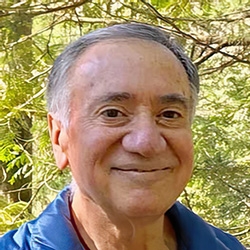

NVC Resources on Mourning
-
Is there someone you wish was more willing? Try guessing what obstacles they might be struggling with. And allow yourself to feel your grief. As you grapple with your own desire for someone to find their willingness, its essential to recognize that this is about you and your needs. You can also express your needs honestly, make requests for how to collaborate, and be responsive to what they want. Read on for more on this, plus four common ways someone’s willingness might be blocked.
-
Three things can be helpful to practice when you want to contribute to someone caught in repetitive fears: self empathy, allowing grief for what you wish was true and is not, and empathy for their difficulty. You can also ask them what's helpful.
-
Let go of resolution pressure and explore intention setting with warmth and compassionate clarity.
-
Awaken your soul force and live from compassion and clarity while grounded in human needs.
-
Why is it so difficult to change our patterns even when we want to, even when we experience shame or despair about them? Arnina Kashtan offers some of the common pitfalls and concrete steps to overcome them in the future.
-
There are times when someone judges us, or meets us with prejudice, and its easier for us to respond by hating them, or judging ourselves as not good enough. How can we love another person instead without excusing their actions? Roxy tells us her story with wonderment, grief and mourning.
-
Blend science, emotional intelligence across species, and NVC to foster belonging and wholeness.
-
Clarity leads to compassion and empowerment with Robert's approach to NVC and transformation.
-
What do we actually mean by “use of force” and what counts as such? Here's a template that will be unpacked in this article: "Use of force is consistent with nonviolence to the extent that we use the least amount of force possible, with the most love possible, aiming at (re)creating conditions for dialogue; that we make the choice using as much nonreactive discernment as possible, with as much support for the choice as possible, and while mourning not seeing another way to respond to a situation in which vital needs are at stake except to use force". Read on for more.
-
The American mythos of Independence Day is that liberty, equality, and opportunity are for all. Yet since the country's formation, these needs have been for some at the expense of others. It started with the brutal robbery and genocide of Native Americans and slavery of Africans. And this theme continued for generations in various forms, including how we related to other peoples, countries, and the ecosphere. To achieve true justice, liberty, and opportunity for all we may need to overcome the ego's sense of separation. Compassionate noncooperation may also be key.

Quick Links
Subscription Preferences
Stay In Touch!
Looking for ways to keep up with NVC Academy news, get special offers, free resources, or words of inspiration? Here are five ways to stay engaged:










